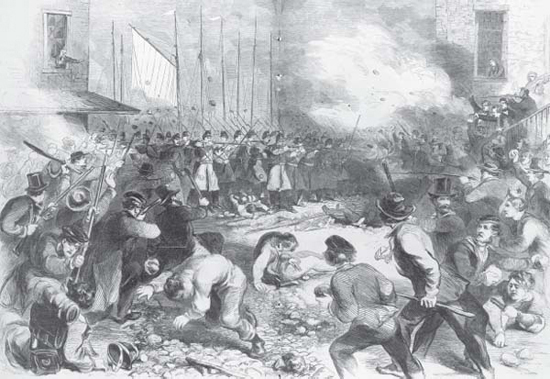A Disease in the Public Mind (29 page)
Read A Disease in the Public Mind Online
Authors: Thomas Fleming

Theodore Dwight Weld was a brilliant preacher who converted thousands to the cause of abolitionism. But he gradually realized he was contradicting his belief in a loving God by preaching hatred of slave owners. He quit the crusade he had done so much to create.
Library of Congress
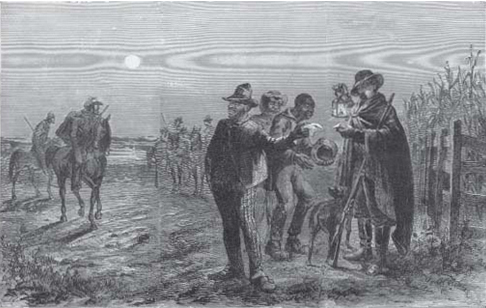
On almost every road in every county of the South, armed men patrolled each night, challenging every black man or woman they met, to make sure they were not plotting a revolt. Above is a slave patrol operating near New Orleans. These patrols underscored the South's constant fear of a race war.
From
Frank Leslie's Illustrated History of the Civil War,
1895
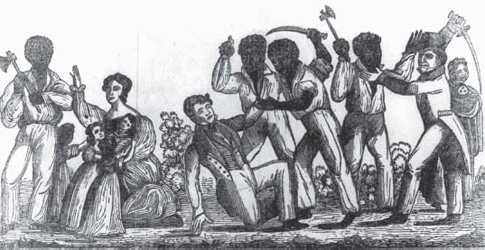
In Southampton County, Virginia, in the summer of 1831, a black preacher named Nat Turner launched a race war that killed more than sixty white men, women, and children. He called on his followers to imitate the example of “Santo Domingo”âas Haiti was called at that time.
From
Authentic and Impartial Narrative of the Tragical Scene which Was Witnessed in Southampton County,
1831
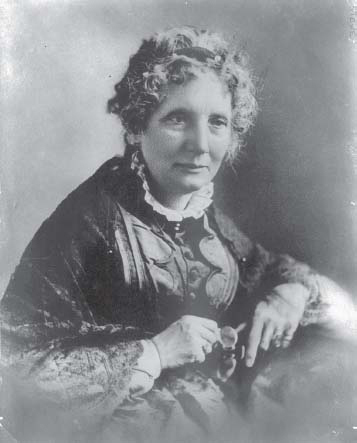
Harriet Beecher Stowe often amazed people by denying she wrote
Uncle Tom's Cabin
. “Who wrote it?” they asked. “God,” Mrs. Stowe replied. When President Abraham Lincoln met her in 1862, he supposedly said: “So you're the little lady who wrote the book that made this great war.”
Library of Congress
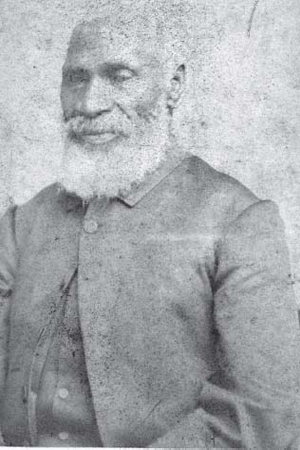
Josiah Henson was the real Uncle Tomâthe Maryland-born slave whose story gave Harriet Beecher Stowe the idea for
Uncle Tom's Cabin.
But Stowe's Uncle Tom had very little resemblance to the tough, shrewd, independent man of business that Henson became.
Library of Congress
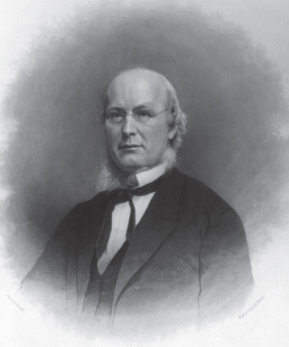
Horace Greeley was the editor of the New York
Tribune
, America's leading anti-slavery newspaper. When Civil War loomed, he was horrified. But he could not control his managing editor, Charles Dana, who repeatedly called for war in fiery headlines.
Library of Congress
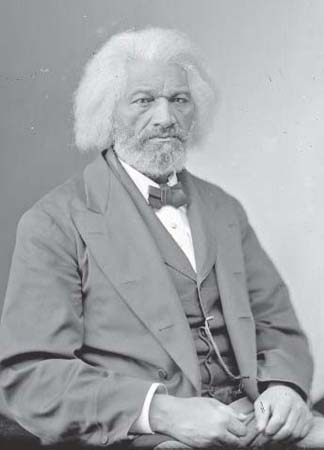
Frederick Douglass escaped from slavery and became a leading voice calling for abolition. In the 1850s he met John Brown, who urged him to join the raid on Harpers Ferry. Douglass warned Brown that it would end in disaster. After the Civil War, Douglass worked with President Ulysses Grant to win civil rights for the freed slaves.
Library of Congress
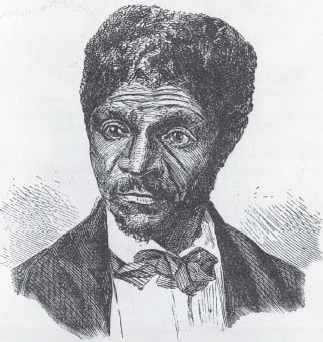
Dred Scott was a Missouri slave whose master took him to Illinois, a free state. Scott claimed this made him and his wife and two daughters free. In 1857, the Supreme Court ruled that as a slave Scott was not a citizen and could not sue in federal court. Three months later, Scott's owners freed him and his family. The court's decision convinced many northerners that the judges were under the evil influence of “The Slave Power.”
Library of Congress
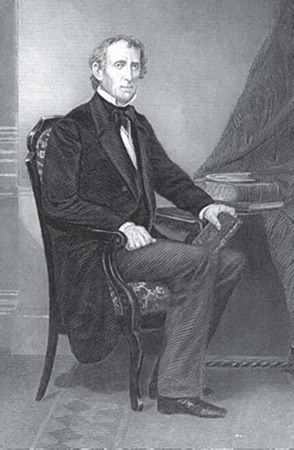
In 1861, ex-President John Tyler proposed a peace conference to avoid an imminent civil war. He argued that diffusionâthe spread of slavery into the western territoriesâwas the only way to avoid a bloody clash. Already slaves were 40 percent of the South's population. Confining them to the Southern states forced the South to choose between a civil war and a race war. When President-elect Lincoln rejected Tyler's proposal, the ex-president called for Virginia's secession.
Library of Congress
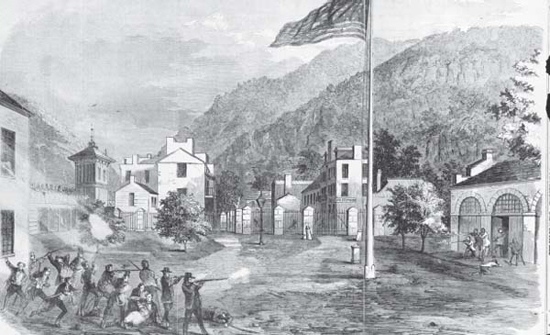
In this illustration, John Brown and his men fire on citizens of Harpers Ferry from the doorway of the federal armory. Hundreds of militiamen responded to the town's call for help and took cover in nearby buildings and on the looming heights. Harpers Ferry became a trap for Brown and his raiders.
From
Frank Leslie's Illustrated Newspaper,
1859
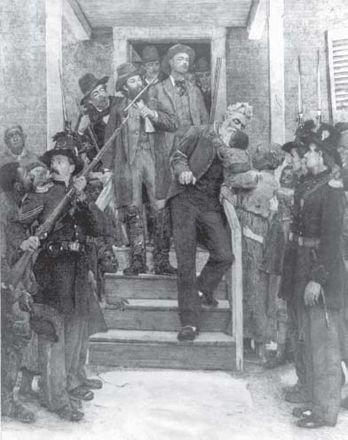
A New York
Tribune
reporter concocted this story of John Brown kissing a black child on his way to his execution. “Faking it” was a well-established custom in American newspapers until the early twentieth century. This became one of the many abolitionist myths about Brown that made Ralph Waldo Emerson and others compare him to Jesus Christ.
Library of Congress
